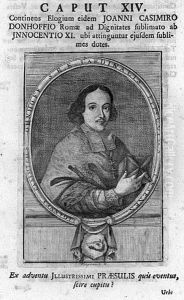Kazimierz Denhoff Jan Paintings
Kazimierz Denhoff-Jan was not known as an artist but rather a significant figure in the political and military landscape of 17th-century Europe. Born in 1649, his life unfolded during a period marked by intense military conflicts and political transformations. Despite the request for an art historian's insight, it's important to clarify that Kazimierz Denhoff-Jan's contributions to history were not in the realm of visual arts, but rather within the complex socio-political and military contexts of his time.
Originating from the noble Denhoff family, Kazimierz's life was deeply intertwined with the political affairs of the Polish-Lithuanian Commonwealth, a state that was a major European power during his lifetime. This era was characterized by the struggle for dominance among European powers, and the Commonwealth was no exception, facing both internal and external challenges. Kazimierz Denhoff-Jan's role in this milieu, therefore, was far from artistic creation; he was more likely involved in the military and political spheres, where noble families like his played significant roles.
The dearth of information regarding Kazimierz Denhoff-Jan's contributions to art might stem from a mix-up with other historical figures or a misattribution of his domain of influence. It's not uncommon for individuals from noble families to be patrons of the arts, and while Kazimierz Denhoff-Jan may have supported artistic endeavors or been a collector, his primary legacy lies elsewhere. His death in 1697 marked the end of a life spent amidst the turbulence of 17th-century European politics rather than in the tranquility of art studios or galleries.
In sum, while the name Kazimierz Denhoff-Jan evokes the rich tapestry of European nobility and their complex roles in shaping the continent's history, his biography as an art historian would focus more on the socio-political landscape of his time rather than contributions to the world of visual arts. His life story underscores the diverse ways in which individuals can leave their mark on history, not through canvas and paint but through the power of political and military influence.
